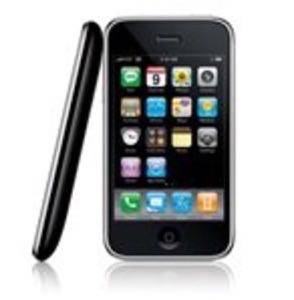According to a research report released by Denmark’s Strand Consult, the iPhone is not the profit-generating machine that people have made it out to be…that is, unless you’re Apple. For carriers, however, gaining the exclusive rights to sell the iPhone isn’t exactly a winning situation. The report says that the hidden costs of the phone, which include things like the subsidies and the revenue share Apple demands, have actually hurt rather than helped mobile operators’ earnings.

iPhone: Bad-for-Business?
According to a Sunday article in The Guardian, the report states that the iPhone isn’t all that it’s cracked up to be, at least from the carriers’ perspective. Because Apple requires carriers to pay subsidies and, in some markets they demand revenue share, the carriers don’t make as much on phone sales as you may think.
“We have not found one operator which has created shareholder value with iPhone,” notes the report.
Not only does the report state that the phone isn’t as profitable for carriers as you may think, it argues that it might actually be a hindrance. “A lot of competitors are actually doing better,” it says when referring to the carriers who don’t offer the Apple device in their lineup. An earlier press release from the company even went so far as to claim that “operators that choose not to carry iPhone products have an increased probability of serving their shareholders interests.”
Also mentioned is something called the “iPhone effect,” a coin termed by a chairman of a multinational operator. “The iPhone effect is the effect that comes from moving our management’s focus away from the 99% of our customers that generate the cash flow that pays our bills,” claims the unnamed chairman.
In addition to these issues, Strand Consult also notes that the iPhone only attracts a limited market segment and one in which customers already were heavy data users…so they’re not actually bringing in that much new revenue via their iPhone data plans. Meanwhile, flat rate data plans mean that the “high data consumption results in high production costs without the corresponding increased revenue.”
Although not mentioned in the Guardian piece, we’re currently seeing the problems AT&T has encountered here in the U.S. – thanks to it being the only network that provides the phone in this market. The company has struggled to provide coverage in heavily populated urban areas, like New York and San Francisco, where iPhone users are plenty. The issue went beyond just being hearsay to warranting a public shaming in a recent New York Times article. According to the article, the company has been working on expensive upgrades to those data-heavy networks to help ease the traffic burden which has led to dropped calls, slow speeds, and often a lack of signal. Problems like these have angered consumers and have given AT&T a bad name in many circles. The company has also had to delay the launch of new iPhone features like MMS and tethering, since their network again had to be prepared to handle the additional data traffic.
Some Carriers Disagree
While AT&T never directly commented on the report, they’ve been consistent in touting the positive benefits of the phone with every release of their quarterly earnings. For example, in their latest earnings announcement, AT&T revealed that the iPhone 3GS launch was the “best sales day” the company ever had. They also gained more than 2.4 million customers this past quarter, 35% who were new to AT&T. They noted that more than 80% of the upgrades were from a non-iPhone device or a 2G iPhone, increasing ARPU [average revenue per unit]. And as for the iPhone owners themselves, the company says their ARPUs are significantly above the company’s post-paid average, churn is much lower, and recurring margins continue to be high.
Another carrier, U.K.-based O2, did comment on the report. They told the Guardian they disagree with the findings, saying that they’ve benefited from the so-called “iPhone effect.” Although the article didn’t go into specifics as to what those benefits are, it’s likely they’re seeing much of the same benefits as AT&T. Finally, according to Reuters, Japan’s exclusive iPhone carrier, the #3-ranked in the country, passed the number one carrier in August in terms of new subscriber sign-ups.
Perhaps the truth here is in the middle. Maybe Strand is right in saying that carriers don’t benefit from iPhone sales. However, they could benefit simply from having iPhone customers who stick with the company for long periods of time, paying for hefty data plans along the way.

















